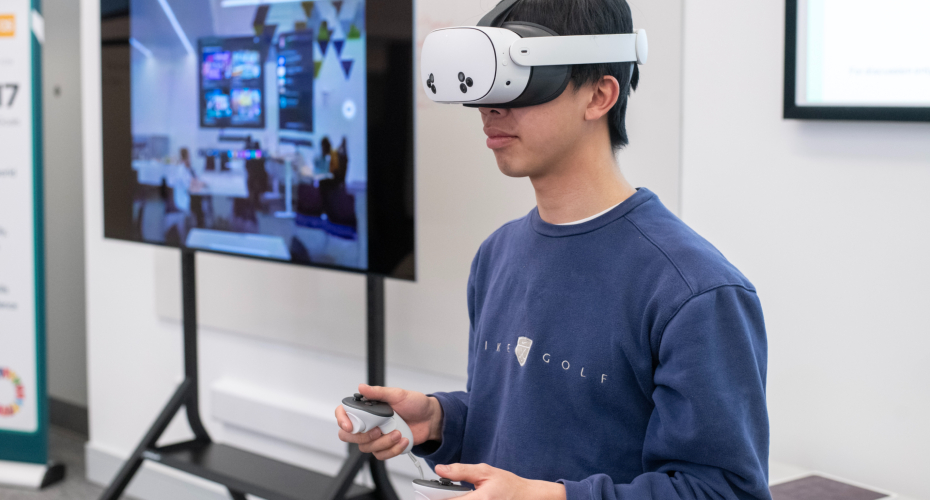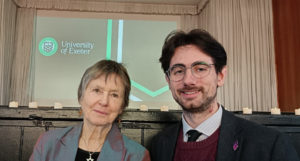University launches new degree to develop storytellers for a digital age

An innovative new degree is set to launch this September with a mission to level up a new generation of video game and digital-savvy storytellers.
The MA Interactive Storytelling Design: Video Games and Beyond at the University of Exeter will be the first of its kind in the region to focus on helping students to develop skills in creating non-linear narratives – as well as the first nationally with this disciplinary identity.
By combining a focus on storytelling with other areas of University expertise, the degree is aiming to address an acknowledged shortage of graduate-level workers in the UK with both the technical and creative skills needed for industries such as animation.
The postgraduate degree has been developed by academics in Exeter’s world-renowned Department of English and Creative Writing.
“So much is happening in game design and interactive experience but the majority of it is rooted in London,” says Dr Amy Cutler, Lecturer in Interactive Storytelling, and co-lead for the programme. “We have such a rich culture of storytelling here in the South West that we wanted to bring that opportunity to the region. Why shouldn’t we connect the craze for escape rooms to the landscape of Agatha Christie, for example?! What would it mean to establish this innovative creativity in our region?”
The new degree has been developed following a successful module on the University’s MA Creative Writing called Story Machines, which focused on the practice of writing interactive stories. This included the study of how aspects such as choice and agency impact story structure and demand a non-linear approach to narrative.
The development of the master’s degree also reflects a desire to connect creative writing to other areas of University expertise, such as AI, drama and creative technologies.
When it welcomes its first cohort in September, the degree will explore the changing relationship between digital technology and narrative, and some of the overarching principles of interaction that can be found in experiences as varied as games, augmented reality, installations, and immersive audio experiences. They will also be trained to use industry standard tools such as games engines like Unity, and software/hardware for VR and mixed realities. This includes local innovations such as the geolocated and immersive AR audio tool Echoes, founded and developed in Devon.
Students will be expected to develop a portfolio of creative and critical work, and an overview of the industries and roles that are demanding these new skills.

“Although it has video gaming in the title, this degree will prepare students for artistic practice and careers in lots of different industries,” says Dr Robert Sherman, Lecturer in Interactive Storytelling and Digital Cultures, and fellow co-lead for the programme. “We want to expand people’s ideas of what interactive storytelling means, and in what industries and spaces it can be deployed.
“We will have partners from the video game industry supporting the degree and many of our students are going to want to make games. But interactive narrative is not just for entertainment; it is found in education, interpretation, and even political activism.”
Recent reports, such as one from Immerse UK, have highlighted skills and employability issues in some UK sectors, particularly in terms of finding talent with both creative and technical abilities. Leading companies such as Aardman have also spoken about recruitment challenges, with talent either needing to be sourced from abroad or developed from within existing staff.
The development of the degree is a response to this, and the team is now considering setting up an agency that will enable students to work on live projects that could be released to the public.
“Very few courses focus exclusively on storytelling – most see it as a subset of game design or art practice,” says Dr Sherman. “But the expertise we have in Exeter in storytelling in lots of different forms is why we see this an exciting new development.”
“Exeter is home to a wealth of published novelists and poets, many of whom embrace different modes and media beyond literature,” adds Dr Cutler. “At a time when the likes of Black Mirror or The Last of Us are showcasing powerful writing, and interactive experiences are extending into so many different walks of life, we’re looking to push the level design of what it is to learn about storytelling.”
More details about the degree can be found on the University website.



